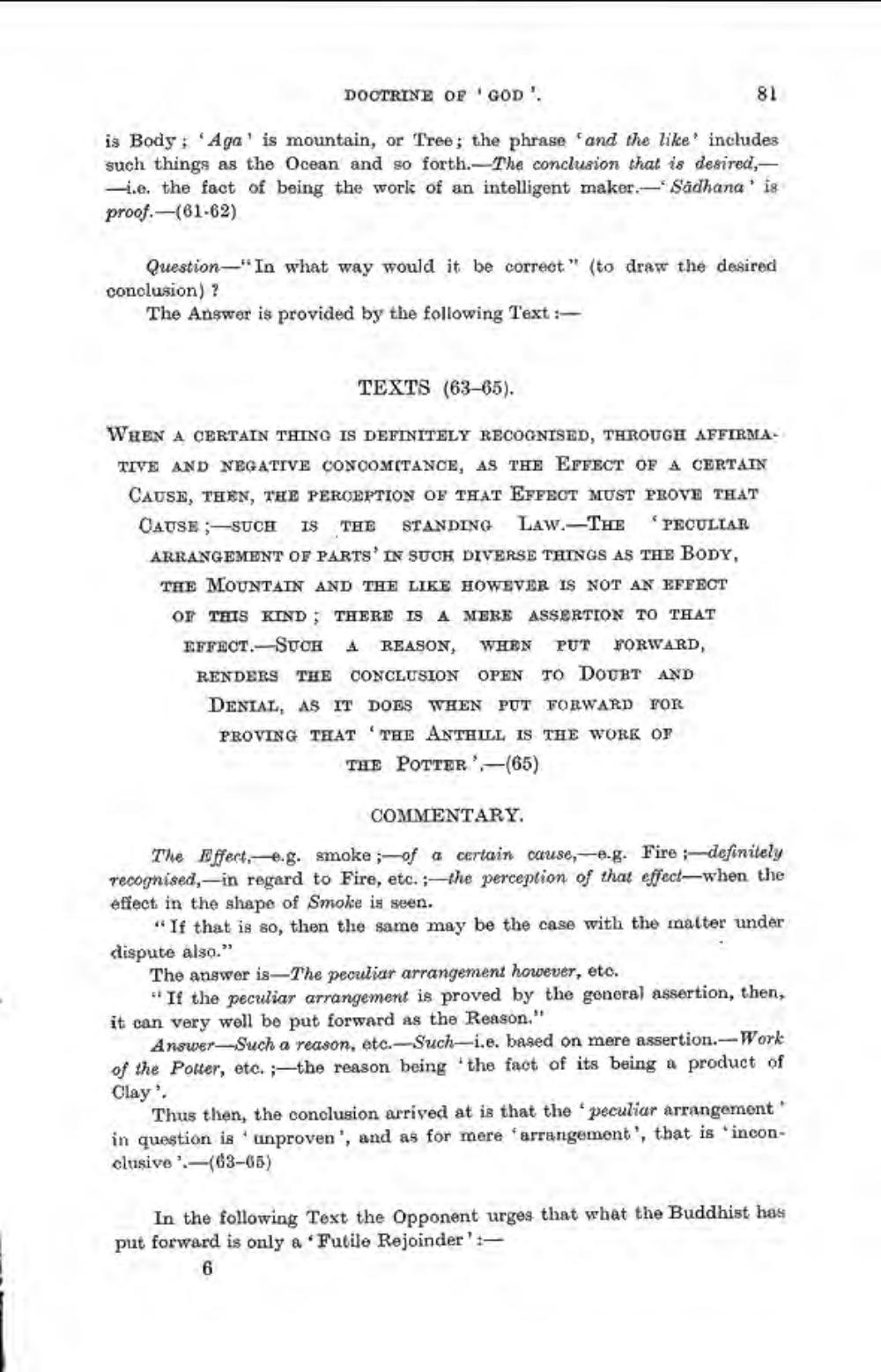________________
DOCTRINE OF GOD'.
81
is Body : Aga' is mountain, or Tree; the phrase "and the like includes such things as the Ocean and so forth. The conclusion that is desired, -
-i.e. the fact of being the work of an intelligent maker.- Sadhana' is proof.-(61-62)
Question-"In what way would it be correct" (to draw the desired conclusion)?
The Answer is provided by the following Text:
TEXTS (63–65).
WHEN A CERTAIN THING IS DEFINITELY RECOGNISED, THROUGH AFFIRMATIVE AND NEGATIVE CONCOMITANCE, AS THE EFFECT OF A CERTAIN CAUSE, THEN, THE PERCEPTION OF THAT EFFECT MUST PROVE THAT DAUSESUCH IS THE STANDING LAW.-THE PECULIAR ARRANGEMENT OF PARTS' IN SUCH DIVERSE THINGS AS THE BODY, THE MOUNTAIN AND THE LIKE HOWEVER IS NOT AN EFFECT OF THIS KIND THERE IS A MERE ASSERTION TO THAT EFFEOT.-SUCH A REASON, WHEN PUT FORWARD, RENDERS THE CONCLUSION OPEN TO DOURT AND DENTAL, AS IT DOES WHEN PUT FORWARD ror PROVING THAT THE ANTHILL IS THE WORK OF
THE POTTER':-(65)
COMMENTARY
The Effert.-.g. smoke ;-of a certain cause,-e.g. Fire - definitely recognised,-in regard to Fire, etc.; the perception of that effect-when the effect in the shape of Smoke is seen.
"If that is so, then the same may be the case with the matter under dispute also.”
The answer is-The peculiar arrangement however, etc.
** If the peculiar arrangement is proved by the general assertion, then, it can very well be put forward as the Reason."
Answer-Such a reason, etc.-Such-i.e. based on mere assertion.-Work of the Potter, etc. ;-the reason being the fact of its being a product of Clay
Thus then, the conclusion arrived at is that the peculiar arrangement in question is unproven', and as for mere arrangement, that is 'inconclusive':-(63-65)
In the following Text the Opponent urges that what the Buddhist has put forward is only a 'Futile Rejoinder':




